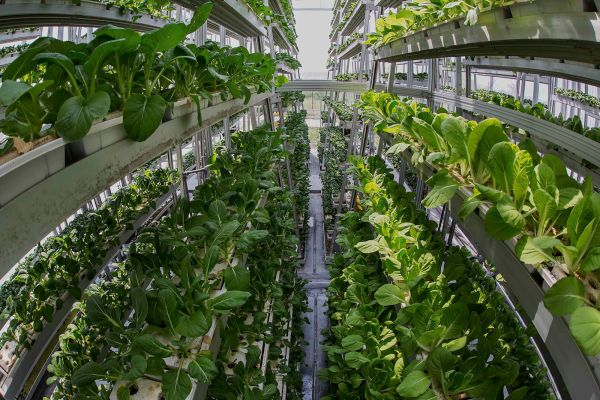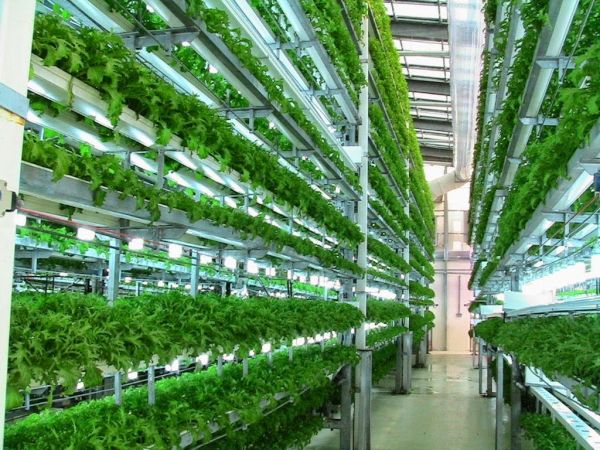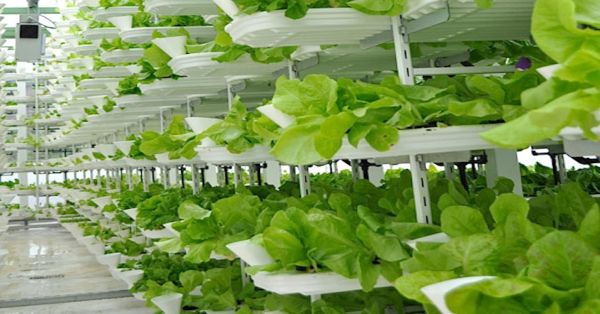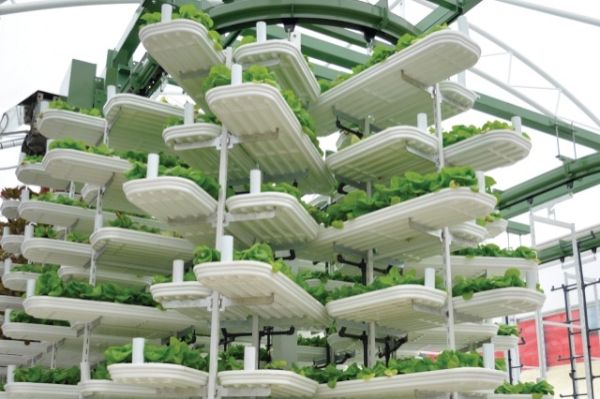Cities are becoming all the more populous and its demand for food is ever increasing. No big farms to grow food crops on but the vertical farming seem to be a promising solution for this problem.
What is Vertical farming?

Image Source : EnvironmentMagazine.Co.Uk
Vertical farming is an agricultural trend that does not take place on huge tracts of land but in an apartment-sized land wherein farming takes place in layers. Unlike traditional farms wherein crops are grown over a large land area, in vertical framing the crops are grown in stacks going upwards. This is why we call it the skyscraper farming as well.
Urban population increases manifold every year, which obviously means the food requirement of cities also increase. Transporting agricultural produce from the rural areas to the urban areas takes a good deal of resources, to which vertical farming serves as an ultimate solution. Imagine half of the urban food requirement being fulfilled by the food grown in the cities itself. Vertical farming skyscrapers can be as high but it is beneficial to keep their height that later does not interfere with the efficient transportation of nutrients and water up to the higher stacks.
Advantages of vertical farming
Maximum crop yield

Image Source : IndustryTap.Com
In comparison to the traditional farming, the vertical farming is way more efficient because one can have maximum crop yield with it. Vertical farming does not depend upon weather for production but on some artificial factors that enable the crop production to take place 24/7.
It has nothing to do with day or night, as it matters in traditional agriculture, as plants use daylight to produce energy for their survival, and we call that the process of photosynthesis. In this unique type of farming, the energy efficient LED lights enable plants in their photosynthesis process, which takes place the entire day and night, eventually enhancing the crop yield.
Reduces transportation cost

Another environmentally friendly advantage of vertical farming is that it reduces dependability of city population on the food grown in rural areas. Had there been a higher dependence upon rural agricultural produce, there would have been a higher rate of transportation transporting agricultural produce from distant rural lands to urban areas.
The more the transportation takes place, the more expenditure on fuel and other costs happens, and it contributes to the air pollution. However, when there is ample of food production taking place in the cities, no more transporting takes place, which makes it an eco-friendly initiative.
Helps water conservation

Image Source : Cnbc.Com
Traditional agricultural techniques bring into use a lot of water as compared to vertical farming, which uses minimal water for growing plants. Plants are watered in a controlled manner water wastage rate is also minimal. In all, vertical farming brings into use only 10 percent of the amount of water used in traditional agricultural practice.
Requires a small of area

Image Source : Eandt.Theiet.Org
Unlike traditional farms that are huge tracts of land, vertical farming takes place on a small land, which is helpful for urban areas wherein space availability is a big problem. These farms do not expand sideward but they expand upwards, just like skyscrapers.
Produces organic food

All food crops are produced organically in vertical farms, as there is no need to use any pesticide. There are no pests first, and as it is the food production is so efficient, so there is actually no need to put any chemical pesticides and fertilizers. On the other hand, traditional farming requires usage of pesticides because there are ample of pests eyeing to destroy crops, and some farmers do not hesitate using chemical fertilizers that enhance crop production but at the cost of our health.
Vertical farming has become an efficient tool for making cities the centers of food production. They reduce city’s dependence upon rural agricultural produce and offer people with organic food crops.

